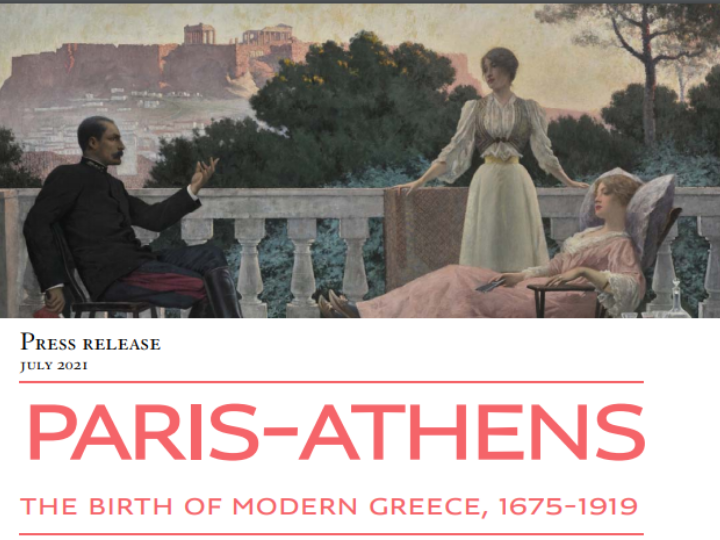2021 is the bicentenary year of two events: the beginning of the Greek War of Independence, traditionally dated to 25 March 1821, and the arrival at the Louvre of the Venus de Milo in the same month of the same year – on 1 March 1821 – following its discovery in April 1820.
The proximity of these two events is rich in meaning. It raises the questions of the special place of ancient Greek art in the Louvre’s collections and the singular role of Greece in the construction of the cultural identity of Europe, and of France in particular.
However, the fascination with Greek antiquity continues to obscure our knowledge of modern Greece, which the French began to rediscover from the 18th century onwards.
The birth of the Greek nation in the 19th century was determined to a large extent by the development of scientific archaeology and by French and German neoclassicism. This exhibition spotlights the cultural, historical and artistic links between the two nations, which led to the definition of modern Greece.
The exhibition Paris-Athens, The Birth of Modern Greece, 1675–1919 is organised chronologically and divided into eight key periods.
In the 17th and 18th centuries, ambassadors on their way to the Sublime Porte (the central government of the Ottoman Empire) in Constantinople discovered an Ottoman province, which aroused the interest of artists and intellectuals.
In 1821, the Greek War of Independence received military and financial support from certain European countries and generated considerable popular enthusiasm.
Following its liberation in 1829, Greece proclaimed Athens as its capital in 1834.
Influenced by the German and French presence on its territory, the new Greek state drew inspiration from French and German neoclassicism to build a modern cultural identity.
The European contribution to the preservation of the Greek national heritage is illustrated by the founding of archaeological institutes, such as the French School of Athens in 1846, which revolutionized knowledge of the material past of Greece.
This exhibition is a first attempt to cross reference the history of archaeology with the development of the Greek state and of modern art.
The excavations of Delos, Delphi and the Acropolis led to the rediscovery of a colourful Greece – a far cry from the neoclassical ideal.
The great Universal Exhibitions held in Paris in the late 19th century (in 1878, 1889 and 1900) presented a modern Greek art bearing the imprint of the country’s Byzantine and Orthodox identity.
Our exhibition ends with works by the Techne group, Greek artists who were close to the European avant-garde and who exhibited in Paris in 1919.




 By: N. Peter Kramer
By: N. Peter Kramer

